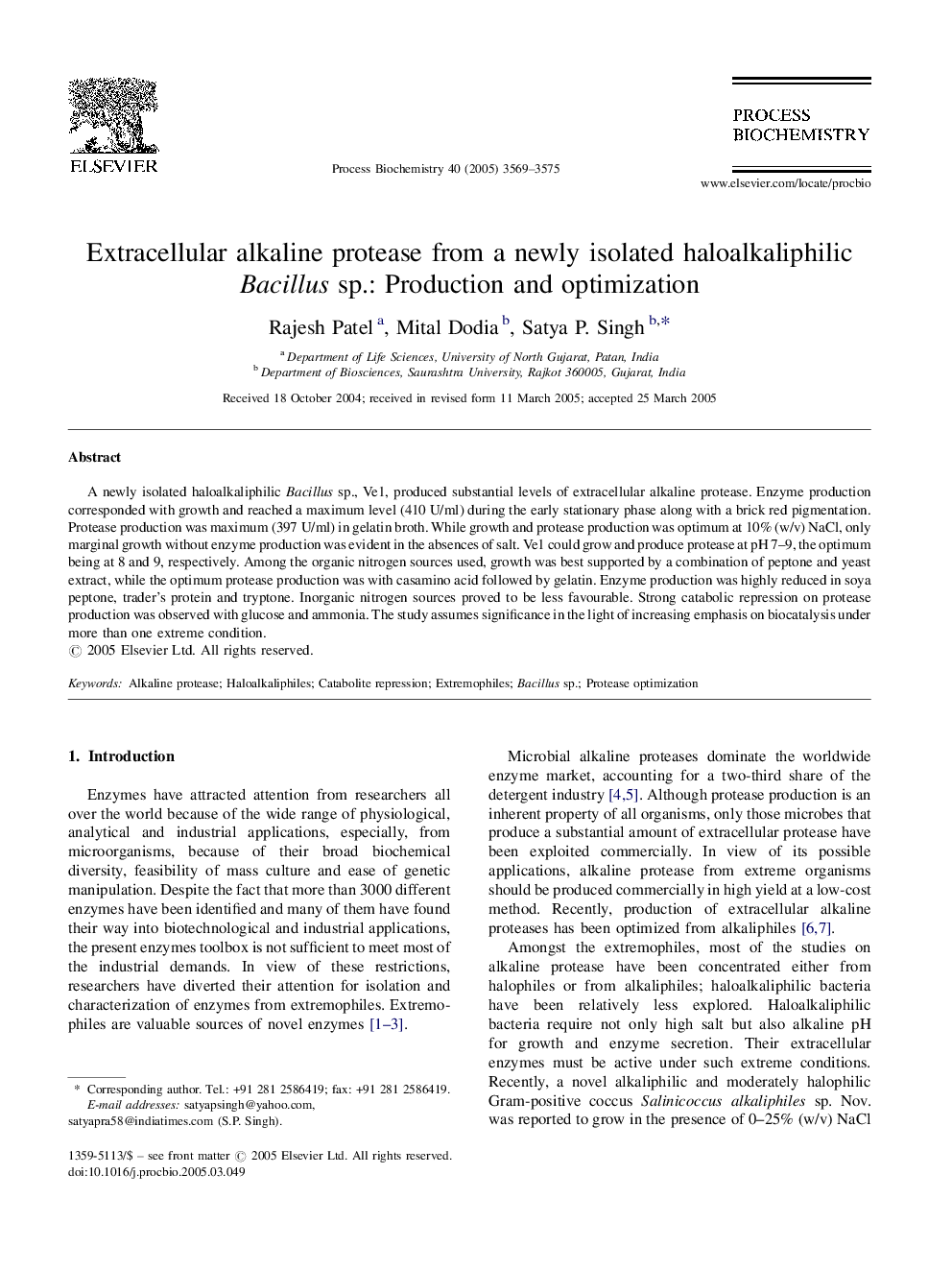| Article ID | Journal | Published Year | Pages | File Type |
|---|---|---|---|---|
| 36516 | Process Biochemistry | 2005 | 7 Pages |
A newly isolated haloalkaliphilic Bacillus sp., Ve1, produced substantial levels of extracellular alkaline protease. Enzyme production corresponded with growth and reached a maximum level (410 U/ml) during the early stationary phase along with a brick red pigmentation. Protease production was maximum (397 U/ml) in gelatin broth. While growth and protease production was optimum at 10% (w/v) NaCl, only marginal growth without enzyme production was evident in the absences of salt. Ve1 could grow and produce protease at pH 7–9, the optimum being at 8 and 9, respectively. Among the organic nitrogen sources used, growth was best supported by a combination of peptone and yeast extract, while the optimum protease production was with casamino acid followed by gelatin. Enzyme production was highly reduced in soya peptone, trader's protein and tryptone. Inorganic nitrogen sources proved to be less favourable. Strong catabolic repression on protease production was observed with glucose and ammonia. The study assumes significance in the light of increasing emphasis on biocatalysis under more than one extreme condition.
